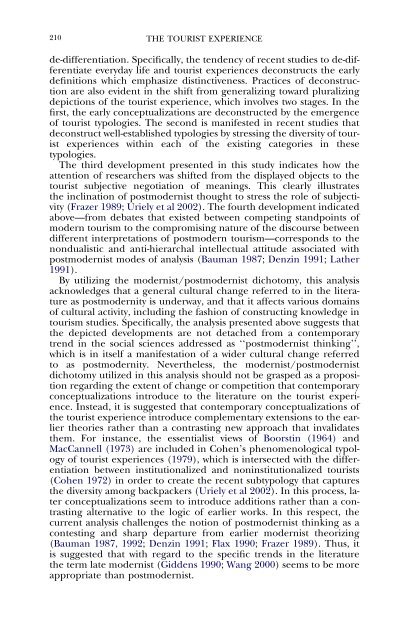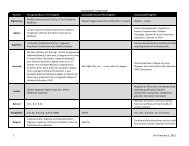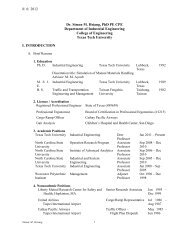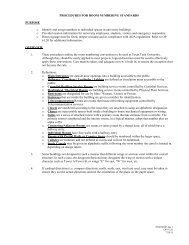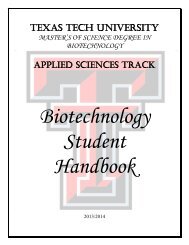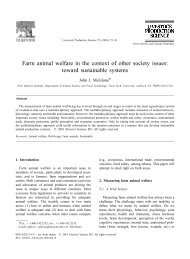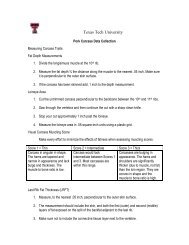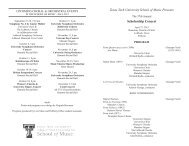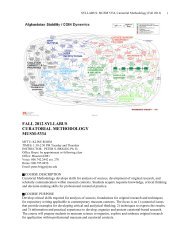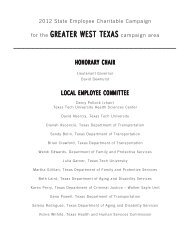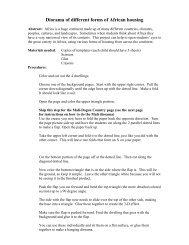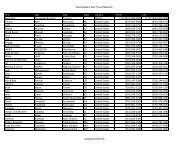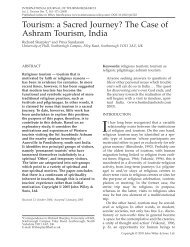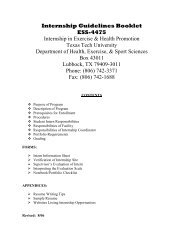Development of Tour Uriely 2005
Development of Tour Uriely 2005
Development of Tour Uriely 2005
You also want an ePaper? Increase the reach of your titles
YUMPU automatically turns print PDFs into web optimized ePapers that Google loves.
210 THE TOURIST EXPERIENCE<br />
de-differentiation. Specifically, the tendency <strong>of</strong> recent studies to de-differentiate<br />
everyday life and tourist experiences deconstructs the early<br />
definitions which emphasize distinctiveness. Practices <strong>of</strong> deconstruction<br />
are also evident in the shift from generalizing toward pluralizing<br />
depictions <strong>of</strong> the tourist experience, which involves two stages. In the<br />
first, the early conceptualizations are deconstructed by the emergence<br />
<strong>of</strong> tourist typologies. The second is manifested in recent studies that<br />
deconstruct well-established typologies by stressing the diversity <strong>of</strong> tourist<br />
experiences within each <strong>of</strong> the existing categories in these<br />
typologies.<br />
The third development presented in this study indicates how the<br />
attention <strong>of</strong> researchers was shifted from the displayed objects to the<br />
tourist subjective negotiation <strong>of</strong> meanings. This clearly illustrates<br />
the inclination <strong>of</strong> postmodernist thought to stress the role <strong>of</strong> subjectivity<br />
(Frazer 1989; <strong>Uriely</strong> et al 2002). The fourth development indicated<br />
above—from debates that existed between competing standpoints <strong>of</strong><br />
modern tourism to the compromising nature <strong>of</strong> the discourse between<br />
different interpretations <strong>of</strong> postmodern tourism—corresponds to the<br />
nondualistic and anti-hierarchal intellectual attitude associated with<br />
postmodernist modes <strong>of</strong> analysis (Bauman 1987; Denzin 1991; Lather<br />
1991).<br />
By utilizing the modernist/postmodernist dichotomy, this analysis<br />
acknowledges that a general cultural change referred to in the literature<br />
as postmodernity is underway, and that it affects various domains<br />
<strong>of</strong> cultural activity, including the fashion <strong>of</strong> constructing knowledge in<br />
tourism studies. Specifically, the analysis presented above suggests that<br />
the depicted developments are not detached from a contemporary<br />
trend in the social sciences addressed as ‘‘postmodernist thinking’’,<br />
which is in itself a manifestation <strong>of</strong> a wider cultural change referred<br />
to as postmodernity. Nevertheless, the modernist/postmodernist<br />
dichotomy utilized in this analysis should not be grasped as a proposition<br />
regarding the extent <strong>of</strong> change or competition that contemporary<br />
conceptualizations introduce to the literature on the tourist experience.<br />
Instead, it is suggested that contemporary conceptualizations <strong>of</strong><br />
the tourist experience introduce complementary extensions to the earlier<br />
theories rather than a contrasting new approach that invalidates<br />
them. For instance, the essentialist views <strong>of</strong> Boorstin (1964) and<br />
MacCannell (1973) are included in Cohen’s phenomenological typology<br />
<strong>of</strong> tourist experiences (1979), which is intersected with the differentiation<br />
between institutionalized and noninstitutionalized tourists<br />
(Cohen 1972) in order to create the recent subtypology that captures<br />
the diversity among backpackers (<strong>Uriely</strong> et al 2002). In this process, later<br />
conceptualizations seem to introduce additions rather than a contrasting<br />
alternative to the logic <strong>of</strong> earlier works. In this respect, the<br />
current analysis challenges the notion <strong>of</strong> postmodernist thinking as a<br />
contesting and sharp departure from earlier modernist theorizing<br />
(Bauman 1987, 1992; Denzin 1991; Flax 1990; Frazer 1989). Thus, it<br />
is suggested that with regard to the specific trends in the literature<br />
the term late modernist (Giddens 1990; Wang 2000) seems to be more<br />
appropriate than postmodernist.


